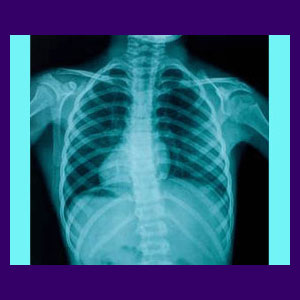
Back pain when breathing is a common indicator of muscular back ache, but may also be a symptom of other less typical pain scenarios. Back muscles are very sensitive to movement when injured. The muscles of the upper back work closely with a variety of chest muscles that are used or moved during the breathing process. The muscles of the lower back work closely with the diaphragm muscle and other lower chest and abdominal muscles that are also involved in the breathing process. This close involvement is often the reason for painful symptoms associated with breathing.
This discussion provides insight on the potential causes of breathing-related back pain and chest pain.
Back Pain When Breathing from Injury
Most cases of breathing back pain are due to a muscular injury. Muscles that are in spasm are particularly affected by any bodily movement. Each breath has the chance of starting the spasm response anew. This can be a nightmare for a suffering patient.
Breathing back ache can also occur from a variety of psychosomatic back pain conditions, including tension myositis syndrome. In these cases, the muscles are oxygen deprived and any small movement can set off another excruciating round of pain. I have personally experienced this type of pain on several occasions during my battle with chronic back torture. Worse still, these types of mindbody symptoms are rarely successfully diagnosed for what they truly are and therefore often elude effective treatment.
Back Pain When Breathing Alternate Causes
There are other possibilities to explain breathing-related back pain. A pulled diaphragm muscle can cause pain when breathing and this pain can radiate throughout the abdomen, chest and back. I injured this muscle once during martial arts training and suffered from general and breathing-related pain for almost 2 months!
Pain while breathing can also be an indicator of serious health problems. Severe cardiac and pulmonary conditions can produce back and chest pain associated with breathing. If you suddenly develop symptoms, get to a hospital immediately to rule out potentially fatal causes for your pain. Any unexplained pain should be checked out by a doctor to eliminate the possibility of cancer or other life threatening condition.
Breathing Related Back Pain
This symptom can be very scary and upsetting to a patient. After all, you must breathe, but when each breath brings the potential for increased pain and symptoms, extreme frustration is the usual result. If you have been examined to rule out any possibility that you have some serious health condition, then relax.
Breathe slow and find a pattern that minimizes your pain. For some patients, steady deep breaths might work better than the tendency towards many shallow breaths. Relaxation will help to reduce the mental anxiety associated with this pain. It will also calm the tension in the affected muscles and prevent muscle spasms.
Talk to your doctor about what can be done to soothe the pain from spasming muscles. Usually, the answer is simply to let the pain resolve itself and recover. If the pain continues and becomes a chronic concern, consider the possibility that your dorsalgia might actually be a mindbody issue. These concerns are more prevalent than most patients know and often explain why the chronic pain does not respond to seemingly perfect therapy choices.




